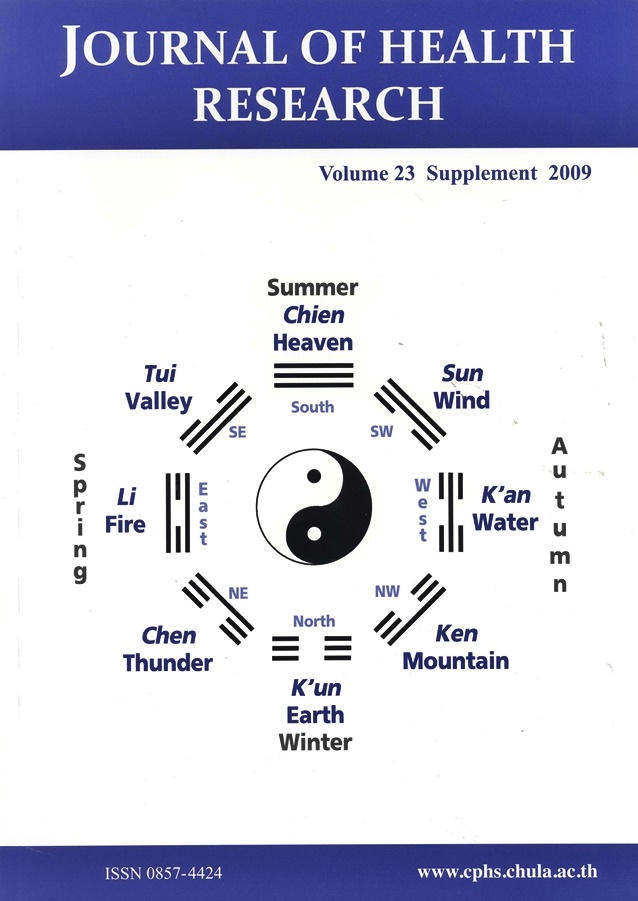Factors Associated with Unsafe Sex Behaviors for Prevention of HIV/AIDS T ransmission Among Myanmar Migrant Fishermen in Ranong, Thailand
Keywords:
unsafe sex, HIV, AIDS, migrantAbstract
The HIV pandemic remains serious infectious disease challenge to public health. A study was conducted on late February 2009, to describe the association of independent variables (socio-demographic characteristics, condom availability, HIV/AIDS information, peer pressure, drug and alcohol use, HIV related knowledge, attitudes & skills) and the dependent variable (unsafe sex with sex workers) among Myanmar migrant fishermen in Ranong, Thailand. The study revealed that longer duration of stay in Thailand and earning of more than 5,000 Thai baht, negative attitude towards HIV/AIDS and condom use, and injected narcotic drugs were statistically associated with practice of unsafe sex with sex workers (p-value <0.005). Receiving information regarding HIV/AIDS, known sources of condom, life skills such as refusing undesired sex, pressure to use drug, to have sex without condom and discussing to use a condom were statically associated with safe sex practice in sex workers (p-value <0.005). Sixty six out of 367 fishermen had had casual sexual partners; and among these respondents 41% always used a condom, 33% used it sometimes and 26% never used it. The result from qualitative research revealed that unsafe sexual activities among casual partners was linked to mutual agreement, trust each other and make them feel safe, no availability of condoms and not carrying along condom with them. When having paid sex with a casual partner only 38% of the fishermen always used a condom and when having sex for money with a casual partner only 43% of the fishermen always used a condom. Given the high prevalence of risk behavior, providing health education together with condoms to these group of Myanmar migrant fishermen in Ranong is crucial. Health education should include teaching life skills such as refuse undesired sex, refuse pressure to use drugs, refuse to have sex without condoms and discuss to use condoms.







